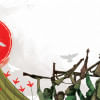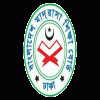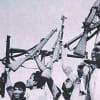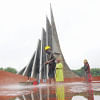51 years of freedom
Bangladesh observed 51 years of its independence today with a muted fervour, and understandably so. Every year, we visit March 26 with a mixed feeling of happiness subdued by the sadness associated with it. It is a day of elation as well as of mourning. The wanton death and destruction foisted on the helpless Bengalis by the marauding occupation army of Pakistan—from the night of March 25 till they meekly surrendered to the joint Bangladesh-India command—has left a scar that is difficult to heal. The price we have paid for our freedom was aptly articulated by a British newspaper following our victory on December 16, 1971, which merits repetition: "If blood is the price of independence, then Bangladesh has paid the highest price in history."
Indeed, we have overpaid the cost of our independence, but perhaps no cost can be very high for the most precious thing in a person's, nay, a nation's life—freedom—if the sacrifices of the brave freedom fighters and martyrs are fulfilled. So after 51 years of living as a free nation, as we recall with gratitude their sacrifices as well as the contribution of national leaders and the visionary leadership of Bangabandhu, we must ask: Have those dreams been fulfilled?
We have many things to feel proud of. Our per capita income has increased manifold as we transited from a Least Developing Country to a developing one. But the distribution of wealth and opportunities has not happened in an egalitarian manner. The rich have gotten richer, the marginalised even more so. Yes, indeed there are fewer people below the poverty line now, but we ask whether the vision for attaining a poverty headcount of 14 percent by 2021 has been achieved.
While the economic indices have recorded many positives, democratic indices have left much to be desired. The strongest pillar of democracy—the people—have had their rights defiled, given the manner in which the last two elections were held. It is indeed a matter of disquiet that people's confidence in democratic institutions, and interest in participating in the polls, have sapped to a dangerously low level. Political space for the opposition has shrunk dangerously, and the freedom to express opinions without fears of retribution is all but absent. Draconian laws have been formulated to stifle people's voices. Repression against women has not abated, and corruption in the public sector—and consequently flight of valuable resources—remains unaddressed.
These are hard questions that we cannot help but ask, and we must address these with due diligence. Otherwise, the sacrifices of our martyrs and freedom fighters will go in vain.

 For all latest news, follow The Daily Star's Google News channel.
For all latest news, follow The Daily Star's Google News channel. 








Comments